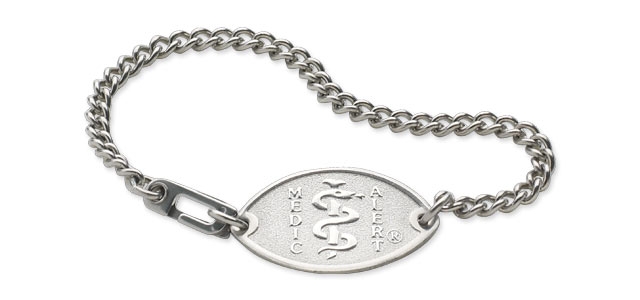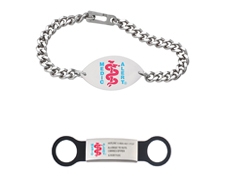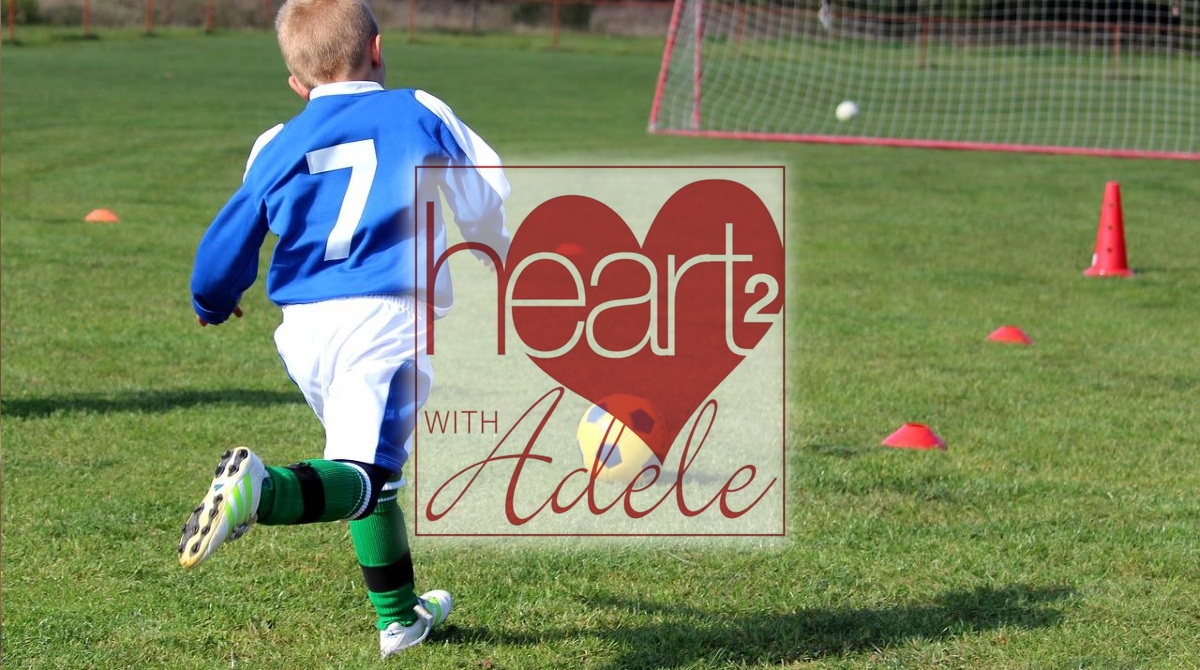
MedicAlert bracelet gives a voice to those with autism when they need it most
By Laurie Mawlam
The silver identification bracelet that indicates an existing condition to first responders has been a valuable tool for decades. In 1953, a teenage girl named Linda Collins cut her finger badly. At the hospital, she received a tetanus shot, had a severe allergic reaction, and almost died.
After that incident, her parents began attaching a note about her allergy to her coat whenever she left the house.
 Eventually they had a custom bracelet made for her with her medical needs engraved into the plate. It became clear that rapid access to medical information could save lives — and MedicAlert developed into a worldwide network.
Eventually they had a custom bracelet made for her with her medical needs engraved into the plate. It became clear that rapid access to medical information could save lives — and MedicAlert developed into a worldwide network.
In April, following World Autism Awareness Day, MedicAlert and Autism Canada put their respective efforts and years of experience together to develop the MedicAlert Autism Program.
It’s a system that serves people on the autism spectrum when emergencies occur by contextualizing care and providing a voice for autistics in crisis situations.
Autism isn’t always recognizable to those who do not know the signs, and this can make those on the spectrum particularly vulnerable in an emergency situation, especially when communication is hindered or not possible.
The MedicAlert ID supports Canadians with 24/7 notification to loved ones, and a special hotline for paramedics, police and emergency responders to get access to detailed health records in an average of five seconds.
The subscriber profile for individuals on the autism spectrum includes information about the person’s routines, anxiety triggers and de-escalation techniques so that emergency responders can make better decisions to help the person at the time of need.
“This is a simple mechanism that can be made widely available and alerts others in an emergency situation to the needs of the individual under stress who has difficulties communicating their needs,” says Dr. Yona Lunsky, senior scientist at the Centre for Addiction and Mental Health (CAMH). Her research has focused on crises and emergencies in the autism community.
Lunsky and coauthors found in a recent study that nearly one in four adolescents and adults with autism visited the hospital for an emergency situation, both medical and psychiatric, in a 12- to 18-month period. The study found that one in six had a police interaction over that same time period.
“The study is a good reminder that supports are often inadequate for people on the spectrum across the country and are not meeting the needs of families,” says Lucie Stephens, Program Director at Autism Canada.
To try to bridge those gaps, Autism Canada works to inform public policy and research by sharing best practices from across the country. It is an advocacy organization with a national perspective and a guiding principle to see the potential in people living with autism.
Autism is a complex neurodevelopmental disorder causing most individuals to experience communication problems, difficulty with social interactions, and a tendency to repeat specific patterns of behaviour. An estimated 1 in 66 children are diagnosed with Autism Spectrum Disorder, making it the most commonly diagnosed neurodevelopmental condition.
The MedicAlert and Autism Canada program provides a recognizable identifier for those in crisis situations. Emergency responders and police will be trained to recognize a situation involving an autistic individual because of the unique blue and red emblem created for the MedicAlert Autism Program.
“The uniquely coloured emblem helps to give a voice to those with autism when they need it most,” said Dermot Cleary, board chair of Autism Canada. “Regardless of the subscriber’s age or where they fall on the spectrum, this program is vital in supporting autistics in an emergency situation.”
Laurie Mawlam has been the Executive Director of Autism Canada since 2006. She has led the charge for a National Autism Strategy since 2007.








